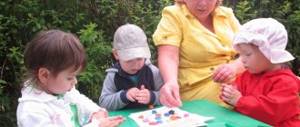Parent meeting on the topic “Rules of conduct at school and at home”
Parent meeting “Rules of conduct at home, school and other public places”
Goals:
- discuss with parents the problems of behavior of younger schoolchildren in an educational institution and at home;
- create conditions for comfortable learning and stay of the child at school;
- to cultivate a culture of behavior in children;
- orient the family to the need to communicate with the school and teachers, and create an optimistic mood for educational activities.
Preparatory work:
- Select statements about education.
- “Education is a process of life, and not a preparation for a future life” (J. Dewey).
- “School is a workshop of humanity” (Ya.A. Komensky).
- “A child is a mirror of the family; just as the sun is reflected in a drop of water, so the moral purity of the mother and father is reflected in children” (V.A. Sukhomlinsky).
- “Our children are our old age, bad upbringing is our future grief, these are our tears, this is our guilt before other people, before the country” (A.S. Makarenko).
- “Politeness generates and causes politeness” (E. Rotterdamsky).
- Place drawings by students in the “My behavior at school” class on the board.
- Conduct a survey of children on the issue of the meeting: “Do you consider yourself a cultured person?” (Appendix 3).
- Invite students to write mini-essays on the topic: “A well-mannered person is...”
Progress of the parent meeting
- Opening speech by the class teacher.
- Discussion with parents about statements of famous teachers.
- Analysis of children's questionnaires on the topic of the meeting.
- Discussion on situations proposed by the class teacher:
The family travels in transport. An elderly woman got on the bus. The child wants to give her a seat and gets up. Mom tells him: “Sit, sit, you’re still small.”
The child is seen in many unseemly acts at school. Both adults and children tell parents about this. The parents deny all accusations against their child. When it is possible to prove the veracity of all the facts, adults begin to blame the school, teachers, and friends of the child. Arriving at class, the child does not find the required textbook in his briefcase. He begins to blame his mother and grandmother for forgetting to put the book in his briefcase. There is a school holiday. Children and parents perform. Some adults begin to negatively discuss actors with their children, talking badly and disrespectfully about them.
Reflection of the meeting, discussion with parents of the issues raised
Sample text of the class teacher's introductory speech Hello, dear fathers and mothers, grandfathers and grandmothers, all adults who came to the parent meeting. In the explanatory dictionary of S.I. Ozhegova says that a well-mannered person is one who knows how to behave well. Education, instilling good manners, respectful attitude towards other people and oneself begin in childhood. The child imitates everything and assimilates the behavior patterns that his family instills in him. He should know when to turn music on and off in the house, how to behave in public places, how to communicate with peers and adults. Remain a cultured person throughout your life. In order for the student to quickly get used to school and get used to it, rules of behavior in various settings are drawn up for him: at school, at home, in public places. “Study diligently, listen carefully to the teacher’s explanations, diligently and independently complete all his tasks, behave well during lessons and breaks, do not be late for classes” - this is how the first rule in the school Charter is formulated. The teacher will definitely tell students that they must come to school on time, neatly dressed, with polished shoes, neatly cut, and combed smoothly. From the teacher, your child learns that if an adult enters the class - the director, the teacher - everyone must stand up as a sign of greeting. To ask or answer an adult, you must raise your hand. There must be order in all activities at school. The teacher will also explain the rules that must be followed during recess: do not shout, do not run, so as not to disturb others. He will tell you how to behave in the dining room, that you need to wash your hands before eating, and after eating - put away the dishes. He will explain that the classroom, like the house, requires cleanliness and order. We are a big family, and in order not to feel crowded in it, you need to know your instructions and carry them out. Wash the board, water the flowers, wipe the desk. The teacher will tell the children this and much more. What can parents do to improve their cultural behavior skills? A lot of things. After all, the family plays a dominant role in the process of personality development; it is the first stable team in a child’s life. It is in the family, even before school, that his main character traits and habits are formed and laid. In order for your child to quickly remember the names of teachers and classmates, you need to ask him about this more often, do not forget to say the “magic words”, do not be rude or use foul language yourself, since your child will definitely adopt your habit. Do not show ostentatious politeness and sensitivity, as the child will begin to imitate you, and you will notice the falsity in the relationship. Being considerate with other people can be a wonderful lesson in kindness and humanity for your child. Observations of first-graders showed that they know polite words, but only use “hello” and “goodbye.” Very rarely they say: “please”, “permit”, “sorry”. And all because in a dialogue between a child and an adult you often hear: “give me”, “leave me alone”, “don’t disturb”, etc. It is necessary to talk more with children, talk about how this or that word arose, in what situation it is advisable to use it. Read more stories about the lives of children, instructive stories, fables. Poems by A.L. are appropriate. Barto, stories by B.V. Zakhodera, S.Ya. Marshak. From the first days, the teacher introduces students to lines from the poem by S.Ya. Marshak “A memory for a schoolchild.” A desk is not a bed, and you cannot lie on it. Sit well at your desk and behave with dignity. The teacher will ask you to stand up, when he allows you, then sit down. If you want to answer, don’t make any noise, just raise your hand.
Children love these poems very much and remember them with joy. Ask your child to show at home how he sits at his desk, how he raises his hand, how he stands up, and how he answers at the blackboard. You can even stage these simple situations with your family. The basic rules for organizing a child’s life at home are as follows:
- Keep a daily routine. Make good use of your free time;
- Do morning exercises every day. Always be clean and tidy;
- Listen to your parents, help them with household chores.
And here we need the help of parents. Think about how best to organize your child’s free time, his leisure time, and what household chores he should be required to do. Be an example for him not only in words, but also in deeds. Alternate your child’s favorite activities with feasible help around the house. As a rule, 6-year-old children must make their own bed and tie their shoelaces. Upon entering school, self-care becomes the responsibility of a first-grader: upon arriving home after classes, the child must change clothes, carefully hang up his uniform, and clean up his briefcase and his workplace. If you instruct your son or daughter to wipe the dust, sweep the floor, or water the flowers, please remember to use a friendly tone. If the work is not done very well, help correct the shortcomings. Do not ignore minor flaws, this will lead to irresponsibility and careless completion of the task. Rules of behavior in public places are also given great importance at school. Instructions are given and various situations are played out. When traveling by transport, teach your child to respect elders, not to damage state property, and to be sensitive and caring towards others. All the rules discussed are very important. Every teacher strives to instill the kindest feelings in children. But this work gives results only when the teacher’s words are confirmed by parents. Remember that behavior is a mirror that reflects the true appearance of everyone.
Parent meeting in 1st "A" grade. Topic: “Cultivating a culture of behavior among junior schoolchildren.”
Parent meeting
in 1"A" class
4th quarter
MOBU Tygdinskaya Secondary School"
2018
Subject:
«
Nurturing a culture of behavior among junior schoolchildren"
Meeting agenda:
1. The tasks of parents in instilling a culture of behavior in children.
2. Children's safety.
3. Preliminary results of the 4th quarter.
4. Org. questions, issues of educational activities.
5. Slave notebook for the 2018-2019 school year. year.
Behavior
is a mirror in which everyone shows their face.
family
Personal example
is the main condition for instilling a culture of behavior in children.
The family is a special kind of collective that plays a basic, long-term and most important role in education.
Objectives of fostering a culture of behavior
- lay the foundations of neatness, neatness, and politeness;
- instill good manners and the ability to behave culturally at school, at home, on the street and in public places;
- equip children with knowledge of the rules of cultural behavior and the habits of following them.
Neatness, tidiness
Personal hygiene
Politeness, culture of speech
Main components of a culture of behavior
Rules of conduct on the street and in public places
Rules of conduct at school and at home
Reasons for non-compliance with the rules of cultural behavior
One of the reasons why rules are broken is that
children simply don't know them.
1 reason
Reason 2
Other children know the rules, but
do not know how to follow them.
Reason 3
Children do not follow some rules,
considering them unnecessary and unimportant.
Children are convinced that adults came up with many rules and force them to follow them. In their children's society, they do not say words of politeness, and do not consider it shameful to be rude.
4 reason
One of the serious
reasons why children do not follow the rules of behavior lies in the people around the child.
Adults do not always set an example of behavior in public places, at home, on the street. They can be rude and irritable, tactless and impolite.
5 reason
Often children do not follow the rules of cultural behavior because adults do not adhere to unity in the requirements that they place on children.
Causes of serious violations
- The struggle for leadership.
- The struggle for self-affirmation against excessive parental authority and guardianship.
- The desire for revenge.
- Losing faith in your own success.
Methods of influencing children:
— Accustoming (based on behavior patterns);
— Educational situations (creating conditions for using
a skill);
— Encouragement (praise); — Punishment (use extremely
rarely);
Ways to influence children:
- A clear example; — Examples from literature (actions of heroes); — Explanation (how and why one should act in a given situation); — Conversation (opportunity to express your opinion).
Fostering a culture of behavior is successful if parents and the school find a common language and implement common requirements for children’s behavior.
- Daily conversations about rules of conduct;
- Topics of OM lessons in the “Communication” section: “My family”, At school”, “You and your friends”.
- Analysis of the characters’ actions (in literary reading lessons);
- Cl. watch (“Respect yourself, respect others”, “Good deeds”, “Know how to be friends”).
If we don’t fill a child’s soul with something good, then someone else will fill it with something bad.
To ensure that your child’s upbringing does not happen in fits and starts, but effectively, devote more time to them in the evenings and on weekends!
Thank you for your attention!
Information sources
The spiral elements are drawn by the author using figures
Microsoft Office PowerPoint 2010
Background author Olga Bor https://www.olgabor.com/
Website
https://linda6035.ucoz.ru/



